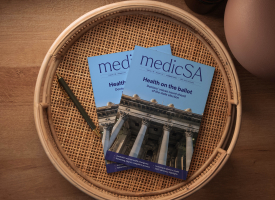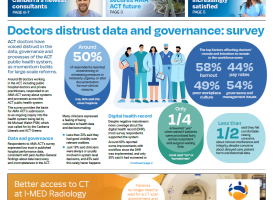Hospital funding changes a welcome start as system struggles
Changes to public hospital funding are a welcome start to addressing issues in the system.

This week we welcomed the announcement out of National Cabinet of changes to public hospital funding and a big investment in primary care, which follows our ongoing advocacy on the need for reforms to public hospital funding and for measures to address the crisis in our primary care system.
Following National Cabinet, the Prime Minister announced the Commonwealth would increase its share of funding for hospitals and implement changes to cap on funding growth. An additional $1.2 billion package of Strengthening Medicare measures was also announced. This will include funding for initiatives that will help older Australians avoid hospital admission and support early discharge from hospital.
The AMA has led the calls for the Commonwealth to increase funding for public hospitals and to remove the 6.5 per cent cap on funding growth since we released a research report Public hospitals: Cycle of crisis in 2021, detailing flaws in the current funding agreement. Since then, we have relentlessly pushed for reform through our Clear the Hospital Logjamcampaign which has also called for funding to address avoidable admissions and readmissions.
Multiple AMA reports highlighted the impact of a system in logjam — the elective surgery backlog, long waiting times for outpatient appointments, deteriorating emergency department and planned surgery performance, exit block, ambulance ramping, and the cost of avoidable hospital admissions for older Australians.
We also welcomed the government’s commitment — through the Strengthening Medicare measures —to addressing workforce issues, including by implementing the Kruk Review interim recommendations, in particular the streamlining of the immigration and application processes for international medical graduates (IMGs).
However, we remain concerned about some of the recommendations on the assessment of specialist IMGs. Efforts to make it easier for overseas trained health professionals must not include a lowering of standards and must not sideline the Medical Colleges.
The announcement followed the release of new data on Wednesday from the Australian Institute of Health and Welfare, which showed that, against all measures, our public hospitals are struggling.
That data showed nearly one in two patients spent more than the recommended time in emergency departments in 2022–23, while the planned surgery waiting list soared past 850,000 people.
We will be looking more closely at what these changes mean for our health system and for our members. We expect the final report to be released soon and will provide further comment at that time.



